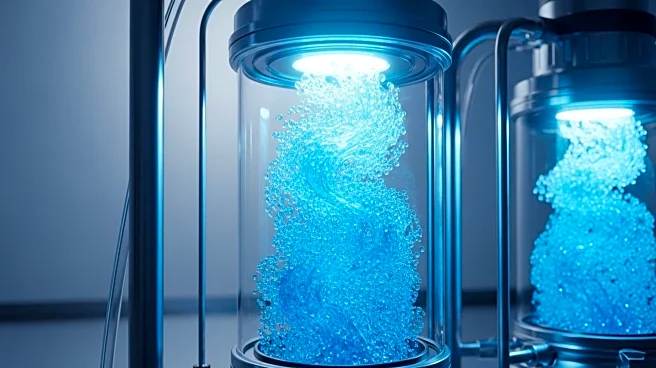What is the story about?
What's Happening?
Cell X Technologies has announced a collaboration with BioLamina to integrate BioLamina's defined laminin reagents with Cell X's Celligent platform. This partnership aims to reduce variability and enhance reproducibility in the manufacturing of advanced therapies. By incorporating BioLamina's human recombinant laminin-521 and laminin-511 isoforms into automated workflows, the collaboration seeks to streamline induced pluripotent stem cell (iPSC) culture and differentiation. The initiative is designed to minimize operator-dependent variability, thereby improving the reliability of cell therapy processes. Lynne Frick, CEO of Cell X Technologies, emphasized the importance of integrating high-quality reagents into automated workflows to advance regenerative medicine. Klaus Langhoff-Roos, CEO of BioLamina, highlighted the collaboration's potential to drive consistency and scalability in iPSC-based manufacturing.
Why It's Important?
This collaboration is significant as it addresses key challenges in the field of regenerative medicine, particularly the need for standardized and reproducible processes in cell therapy manufacturing. By reducing variability and enhancing reproducibility, the partnership could lead to more reliable and scalable production of iPSC-based therapies. This has the potential to improve patient outcomes and accelerate the transition from research to clinical applications. The collaboration also underscores the growing importance of automation and high-quality reagents in developing next-generation therapies, which could have a substantial impact on the biotechnology industry and healthcare sector.
What's Next?
The collaboration between Cell X Technologies and BioLamina is expected to lead to the development of robust, regulator-ready cell therapy processes. As the partnership progresses, it may attract attention from other stakeholders in the regenerative medicine field, potentially leading to further collaborations or advancements in iPSC-based therapeutics. The success of this initiative could also influence regulatory standards and best practices in the industry, promoting wider adoption of automated and standardized processes in cell therapy manufacturing.
Beyond the Headlines
The collaboration highlights the ethical and scientific importance of standardization in regenerative medicine. By ensuring reproducibility and reducing variability, the partnership addresses concerns about the reliability and safety of cell-based therapies. This could lead to increased trust and acceptance of these therapies among healthcare providers and patients. Additionally, the integration of automation and high-quality reagents may set new benchmarks for innovation and efficiency in the biotechnology sector, potentially influencing future research and development strategies.














